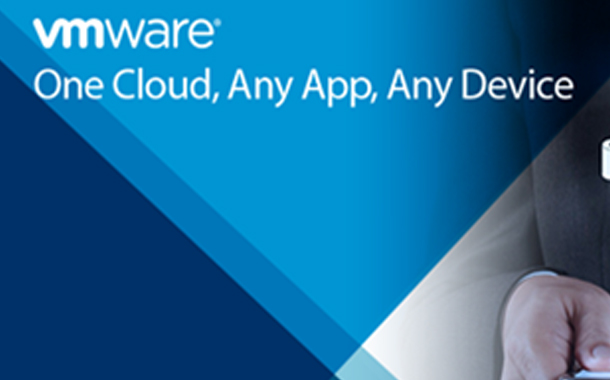New Cross-Cloud Services will enable customers to manage, govern, and secure applications running across public clouds, including AWS, Azure and IBM Cloud
VMware announced the extension of the company’s hybrid cloud strategy with the new VMware Cross-Cloud Architecture, enabling customers to run, manage, connect, and secure their applications across clouds and devices in a common operating environment.
As per the release, the Cross-Cloud Architecture enables consistent deployment models, security policies, visibility, and governance for all applications, running on-premises and off-premises, regardless of the underlying cloud, hardware platform or hypervisor. VMware’s Cross-Cloud Architecture builds on its leading private and hybrid cloud capabilities by offering customers the freedom to innovate in multiple clouds, and is delivered through VMware Cloud Foundation, a new set of Cross-Cloud Services which VMware is developing and the VMware vRealize cloud management platform.
For private clouds, customers can procure turnkey VxRack Systems integrated solutions from EMC today, or combine Cloud Foundation software with qualified VMware Virtual SAN Ready Nodes from Dell, Hewlett Packard Enterprise and QCT.
VMware vRealize Suite delivers a comprehensive enterprise-ready cloud management platform (CMP) that can speed up IT service delivery, improves IT operations, and delivers end-user choice with control, across heterogeneous, multi-cloud environments (vSphere and non-vSphere).
VMware vSphere Integrated Containers will enable developers to innovate faster with secure, multi-tenant self-service access to containers, while IT will be able to leverage existing tools, knowledge, and processes to deploy and manage container services. VMware Integrated OpenStack gives customers the fastest path to deploy and manage a production-grade OpenStack cloud on top of a VMware-based SDDC infrastructure.
VMware Horizon enables customers to quickly deliver virtualized desktops and applications through a single platform, creating a secure digital workspace.
Cross-Cloud Services are new Software as a Service (SaaS) offerings under development to enable visibility into cloud usage and costs, enhance consistent networking and security policies, and automate the deployment, management, and migration of applications and data across vSphere and non-vSphere private and public clouds. With a common operating environment for both public clouds and on-premises workloads, central IT can protect data and applications and control costs while enabling developers and the business to innovate freely in the clouds they choose.
VMware vCloud Air and the VMware vCloud Air Network service provider ecosystem remain critical parts of the company’s hybrid cloud strategy. VMware vCloud Air Network partners offer a wide array of services, provide geographic and industry specialization, and help customers meet complex regulatory requirements.
“Customers are increasingly relying on multiple public and private clouds to run their applications, but are daunted by the challenge of managing and securing applications across diverse cloud platforms,” said Raghu Raghuram, executive vice president and general manager, Software-Defined Data Center Division, VMware. “When customers combine a best-in-class private cloud with leading public clouds, all enabled by VMware, they have the strongest, most flexible hybrid cloud strategy. VMware is delivering cloud freedom and control by providing a common operating environment for all clouds with our unique Cross-Cloud Architecture.”
VMware Cloud Foundation is expected be generally available in Q3 2016. VMware Cloud Foundation on IBM Cloud is expected to be generally available in Q3 2016. VMware vCloud Air Hybrid Cloud Manager 2.0 is expected be generally available in Q3 2016.
VMware vCloud Availability for vCloud Director is generally available today.


